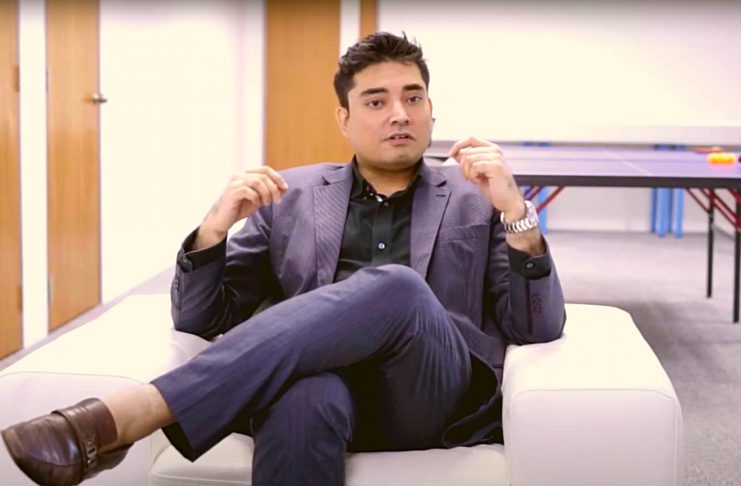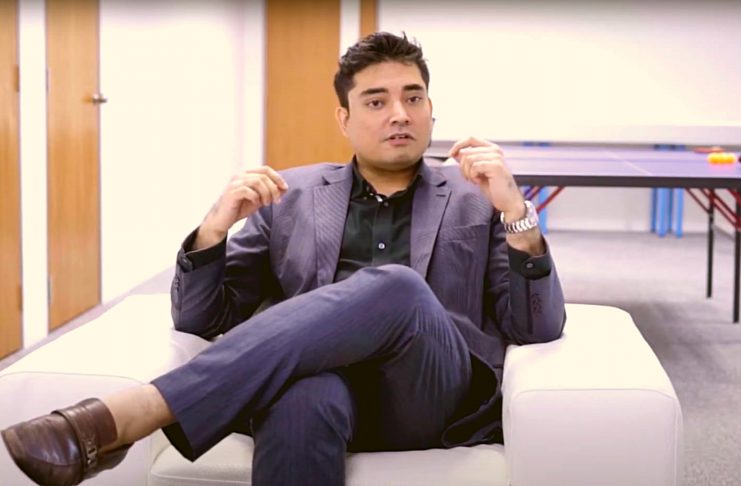Memory Unlocked: Sancy Suraj and Pinnacle Minds’ Evidence-Based Approach to Boosting Your Brainpower
In today’s fast-paced world, being able to retain and recall information quickly and efficiently is more important than ever. That’s where Pinnacle Minds comes in – a memory training company based in Singapore, founded by CEO Sancy Suraj. Pinnacle Minds uses evidence-based techniques rooted in principles of neuroscience and cognitive psychology to help individuals of all ages improve their memory skills and boost their brainpower.
In this article, we will dive into the approach and success of Pinnacle Minds and how they are changing the landscape of education through their memory techniques. We will explore how the company incorporates principles of neuroscience and cognitive psychology into their training programs, examine the compelling research and evidence supporting the efficacy of memory improvement techniques, and learn how Pinnacle Minds measures the effectiveness of their training programs in both the short-term and long-term.
How does Pinnacle Minds incorporate principles of neuroscience and cognitive psychology into its memory training programs?

As the CEO of Pinnacle Minds, I am proud to say that we incorporate principles of neuroscience and cognitive psychology into our memory training programs. We believe that understanding how the brain processes and retains information is crucial in designing effective memory techniques. By studying the brain and cognitive processes, we can develop strategies that are tailored to how the brain works, which enhances the efficiency of our training programs.
For example, we use techniques such as spaced repetition and visualization, which are based on the principles of neuroplasticity, to help students and adults remember and recall information more effectively. We also incorporate principles of cognitive psychology, such as the importance of attention and active engagement in learning, to make our training programs more engaging and effective.
We continuously update our programs based on the latest research in neuroscience and cognitive psychology to ensure that we are providing our clients with the most effective memory techniques available. By incorporating evidence-based approaches into our training programs, we are confident that our clients will see significant improvements in their memory and brainpower.
Overall, we believe that incorporating principles of neuroscience and cognitive psychology is essential in developing effective memory training programs. By understanding how the brain processes and retains information, we can design strategies that are tailored to how the brain works, which enhances the efficiency of our training programs. We are committed to staying at the forefront of the latest research in this field to continuously improve our training programs and provide our clients with the most effective memory techniques available.
Can you describe some of the most compelling research and evidence supporting the efficacy of memory improvement techniques?
As the CEO of Pinnacle Minds, I am thrilled to discuss the compelling research and evidence supporting the efficacy of memory improvement techniques. One of the most significant pieces of research in this field is the concept of neuroplasticity, which refers to the brain’s ability to change and adapt in response to new experiences and learning. This research shows that with the right training and techniques, individuals can enhance their memory and cognitive abilities, regardless of age or current level of ability.
One of the most effective techniques for memory improvement is spaced repetition. This technique involves reviewing information at increasing intervals over time, which has been shown to significantly enhance memory retention. Another technique is visualization, which involves creating mental images to help remember information. This technique has been shown to be particularly effective in enhancing memory for visual information, such as faces, places, and objects.
Studies have also shown that physical exercise can have a positive impact on memory and cognitive function. Exercise has been shown to increase the production of neurotrophins, which are proteins that promote the growth and survival of neurons. Additionally, exercise has been linked to increased blood flow to the brain, which can enhance cognitive function and memory retention.
Overall, there is a significant body of research supporting the efficacy of memory improvement techniques. These techniques are based on principles of neuroplasticity, cognitive psychology, and other fields, and have been shown to significantly enhance memory and cognitive function. As a memory training company, we incorporate these evidence-based techniques into our programs to ensure that our clients achieve optimal results.
How does Pinnacle Minds measure the effectiveness of its training programs, both in terms of short-term and long-term outcomes?
As the CEO of Pinnacle Minds, I can share that we take the effectiveness of our training programs very seriously. To measure the effectiveness of our training programs, we use a variety of methods, both in terms of short-term and long-term outcomes.
In the short term, we use assessments and evaluations to measure the immediate impact of our training programs. For example, we use pre- and post-training assessments to measure improvements in memory and cognitive function. We also conduct surveys to collect feedback from our clients on their experience with our training programs, as well as their perception of their own memory abilities.
In the long term, we follow up with our clients to measure the lasting impact of our training programs. We track our clients’ progress over time to see if they are still using the memory techniques they learned during our training, and if they have continued to see improvements in their memory and cognitive abilities.
We also conduct research studies to further evaluate the effectiveness of our training programs. We collaborate with researchers and institutions to design studies that evaluate the impact of our training programs on memory and cognitive function, and we use the results of these studies to continuously improve our programs.
Overall, we believe that it is essential to measure the effectiveness of our training programs to ensure that we are providing our clients with the most effective memory techniques available. By using a variety of methods to evaluate both short-term and long-term outcomes, we can continuously improve our programs to provide our clients with the best possible results.
“Measuring the effectiveness of our training programs is not just a goal, it’s our responsibility. We use a holistic approach that includes short-term assessments, long-term follow-ups, and research studies, to ensure that we provide our clients with the most effective memory techniques available, and help them achieve long-lasting improvements in their cognitive abilities.”
Can you share any success stories of individuals who have seen significant improvements in their brainpower beyond just memory as a result of Pinnacle Minds’ training?
As the CEO of Pinnacle Minds, I am proud to say that we have helped countless individuals see significant improvements in their brainpower beyond just memory as a result of our training programs. Our memory improvement techniques have been shown to enhance not only memory but also cognitive function and overall brainpower.
We have worked with individuals from all walks of life, from students looking to improve their academic performance to professionals looking to enhance their productivity and efficiency in the workplace. We have seen individuals improve their ability to focus, process information more quickly, and make better decisions.
One particularly inspiring success story is that of a student who was struggling in school due to poor memory and lack of focus. After participating in our memory training program, he saw significant improvements in his memory and cognitive function, as well as an increase in his overall academic performance. He went from struggling to keep up with his peers to excelling in his studies and eventually earning a scholarship to a prestigious university.
Another success story is that of a professional who was struggling to keep up with the demands of his job. After participating in our training program, he saw significant improvements in his ability to process information and make decisions quickly and accurately. He also reported feeling less stressed and more confident in his abilities, which helped him excel in his career and earn a promotion.
Overall, we have seen countless success stories from individuals who have participated in our memory training programs. Our techniques have helped individuals enhance their brainpower in a variety of ways, from memory to cognitive function to overall productivity and efficiency.
How do you see memory training evolving in the future in response to new research and technological advancements?
As the field of neuroscience continues to advance and new technologies emerge, I believe that memory training will evolve to become even more personalized, effective, and accessible.
Advances in technology, such as virtual and augmented reality, could allow for more immersive and engaging memory training experiences. This could help individuals better retain information and develop stronger memory skills. Additionally, wearable technology, such as brain sensors, could provide more accurate and detailed information on brain activity, allowing for more personalized memory training programs tailored to an individual’s specific needs.
Furthermore, as the understanding of the brain and memory continues to deepen, memory training programs will likely become even more evidence-based and effective. New research could help identify more effective memory techniques and better understand how memory works, allowing for more targeted and efficient training programs.
In terms of accessibility, I believe that memory training will become more widely available and accessible to individuals around the world. Online memory training programs could allow individuals to access high-quality training from anywhere in the world, making it easier for individuals to improve their memory skills regardless of their location.
Overall, I see a bright future for memory training as new technologies and research continue to advance the field. By embracing these advancements and continuing to develop evidence-based and effective training programs, memory training will continue to help individuals enhance their brainpower and improve their overall quality of life.
“Memory training is on the cusp of a new era, where advancements in technology and neuroscience will allow for personalized, evidence-based, and accessible programs that will help individuals enhance their brainpower and transform their lives.”
Pinnacle Minds has established itself as a leading memory training company in Singapore and around the world. One of the key factors contributing to their success is their evidence-based approach to memory training. By incorporating principles of neuroscience and cognitive psychology into their training programs, Pinnacle Minds helps individuals develop effective memory strategies that are backed by scientific research.
The effectiveness of Pinnacle Minds’ training programs is supported by compelling research and evidence. Studies have shown that memory techniques taught by the company can help individuals improve their recall abilities by up to 80%. Additionally, Pinnacle Minds has worked with some of the best schools and companies in Singapore, such as Nasdaq, Bank of Singapore, and Singapore Airlines, to deliver memory training techniques to their students and employees.
Pinnacle Minds is also committed to measuring the effectiveness of their training programs, both in the short-term and long-term. Through a combination of pre and post-training assessments, as well as follow-up assessments, the company is able to track improvements in memory skills over time. This data helps Pinnacle Minds refine their training programs and ensure that they are providing the most effective techniques to their clients.
What advice would you give to individuals who are interested in pursuing further education or research in the field of memory improvement and brainpower enhancement?

For individuals interested in pursuing further education or research in the field of memory improvement and brainpower enhancement, I would recommend starting with a solid foundation in neuroscience, cognitive psychology, and memory research.
This could involve pursuing a degree in neuroscience or psychology, or taking courses in these fields at a university or online. It’s also important to stay up-to-date on the latest research in the field, by reading academic journals and attending conferences and workshops.
Additionally, practical experience in memory training can be invaluable. This could involve volunteering or working with a memory training company or organization to gain hands-on experience in developing and delivering effective memory training programs.
Finally, networking with other professionals in the field can be helpful in gaining new insights and finding opportunities for collaboration and further research. Joining professional organizations, attending conferences, and participating in online communities can all be helpful in building connections and staying up-to-date on the latest developments in the field.
Overall, pursuing further education and research in the field of memory improvement and brainpower enhancement requires a combination of academic knowledge, practical experience, and networking. By building a strong foundation in these areas, individuals can help advance the field and develop effective techniques to enhance memory and cognitive function.
“Expanding your knowledge on memory improvement and brainpower enhancement requires a mix of academic insight, hands-on experience, and a network of like-minded professionals. By investing in each of these pillars, you can build a strong foundation to not only advance the field but also unlock the true potential of the human mind.”
In conclusion, Pinnacle Minds and Sancy Suraj have established themselves as leaders in the field of memory training. By incorporating principles of neuroscience and cognitive psychology into their training programs, and continually refining their techniques based on the latest research, Pinnacle Minds is helping individuals around the world improve their memory skills and boost their brainpower. With advances in technology and new research on the horizon, the future of memory training looks bright, and Pinnacle Minds is at the forefront of this exciting field.














